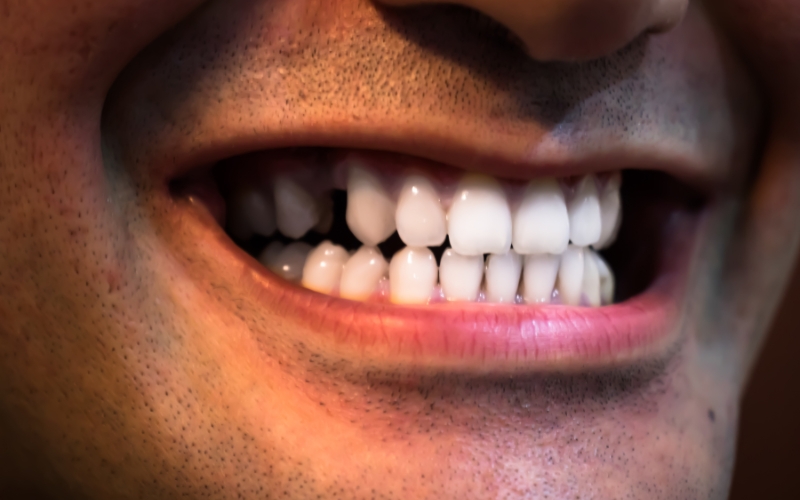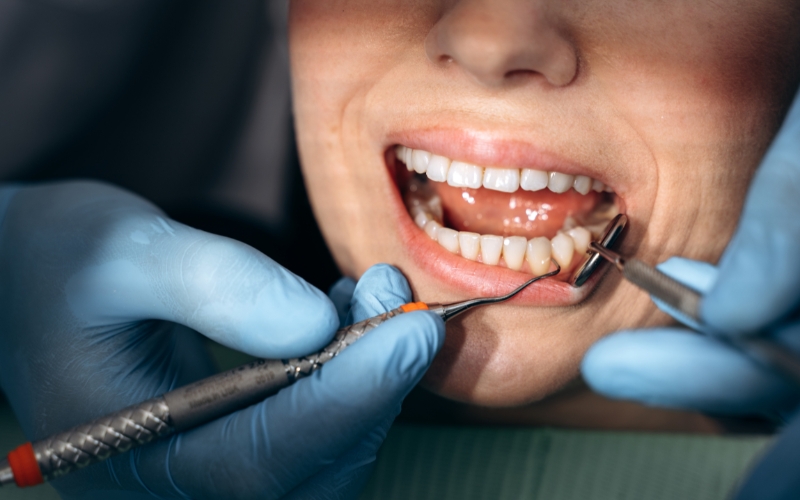
Bad breath, or halitosis, is a condition experienced by almost everyone from time to time. However, chronic bad breath could be a symptom of an underlying problem, including gum disease. Understanding the difference between normal bad breath and gum infection can help you take the right steps toward better oral hygiene.
What Causes Bad Breath?
Bad breath is due to a lot of different things. Most often, it’s due to bad oral health. When food stays in the mouth, oral bacteria produce acid from it, and the bad smell results from it. Aside from inadequate brushing, dry mouth, and consuming foods like garlic or onions, bad breath may be produced by several other things.
But if bad breath happens even after you brush, floss, or use mouthwash, it could indicate something more serious, like gum disease. Gum disease occurs when bacteria build up along the gum line and cause infection and inflammation.
Signs You Might Have Gum Disease
Gum disease, particularly in its early form (gingivitis), is hard to detect. The symptoms won’t necessarily be evident, but it’s important to catch them so that you can prevent further problems. Below is what you should look out for:
- Red, Swollen, or Bleeding Gums: If your gums bleed when you are brushing or flossing, or if they happen to be swollen and red, it’s a sign that something is wrong.
- Persistent Bad Breath: If you’ve noticed that your breath continues to have an unpleasant odor, even after brushing or using mouthwash, this could signal the presence of gum disease.
- Gum Recession: If your gums seem to be pulling away from your teeth, exposing more of your tooth structure, gum disease might be at play.
- Loose Teeth: As the gum disease advances, it can weaken the bone that supports your teeth, leading to looseness.
- Sore Chewing: Uncomfortable chewing can also be a sign of an underlying gum infection.
The Link Between Bad Breath and Gum Disease
While not every time bad breath is the result of gum disease, recurring bad breath is normally the most obvious symptom of an infected gum line. As bacteria accumulate along the gums, they produce sulfur compounds, which are mostly responsible for the bad smell. If your bad breath persists and is accompanied by other signs of gum disease, it’s time to visit your local Ann Arbor dentist.
Treatment Options
If you suspect you have gum disease, the best thing you can do is visit a dentist. The dentist will assess the extent of your gum disease and recommend a treatment that is tailored to what you require. Gum disease at its earliest stage of development is treated with a full cleaning in an attempt to dislodge plaque and tartar buildup. In case the gum disease has progressed, further treatments such as scaling and root planing are needed to slow the disease’s advancement.
Good oral hygiene is the best preventive measure. Brush your teeth at least twice a day, floss daily, and visit your dentist twice a year for checkups and cleanings. If you’re in Ann Arbor and dealing with bad breath or symptoms of gum disease, don’t wait until the problem worsens.
Gum disease, if not addressed, can lead to more complex dental issues like the loss of teeth or deep dental infections. Book an appointment with the dental team of Stadium Family Dentistry in Ann Arbor.



